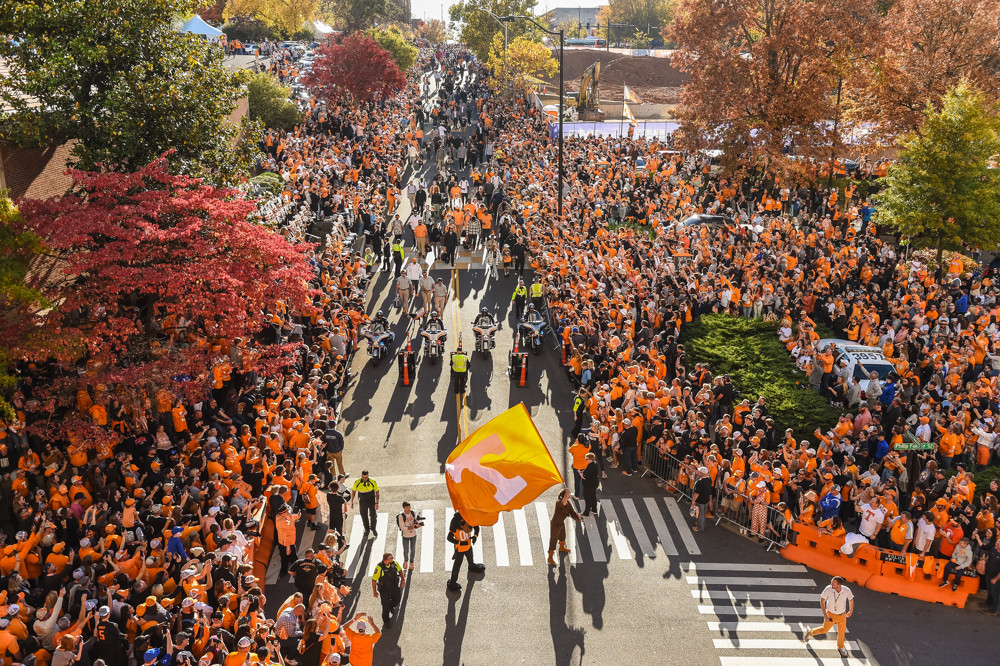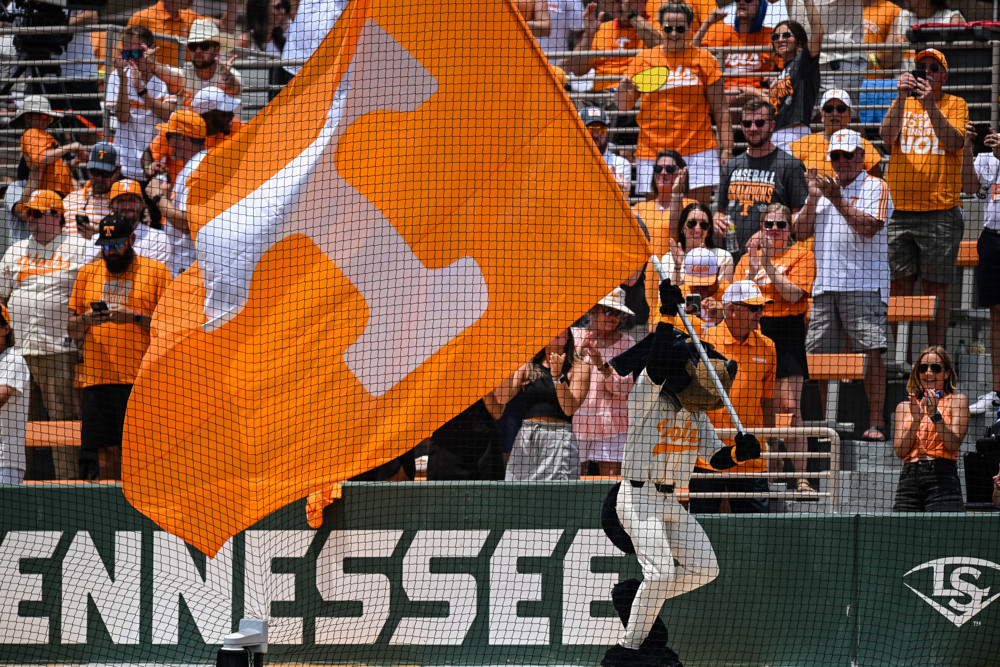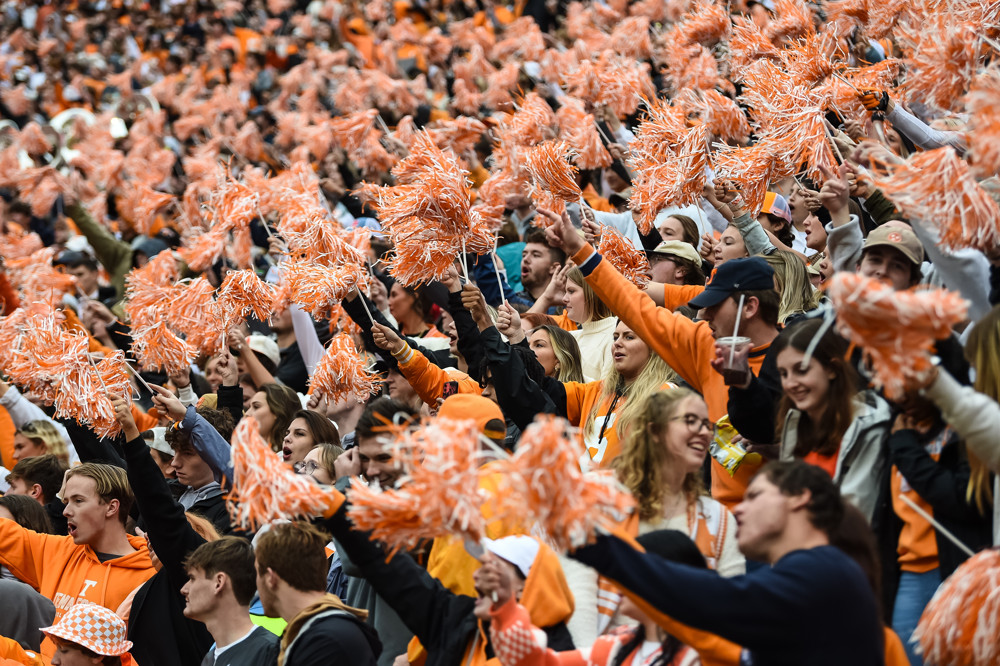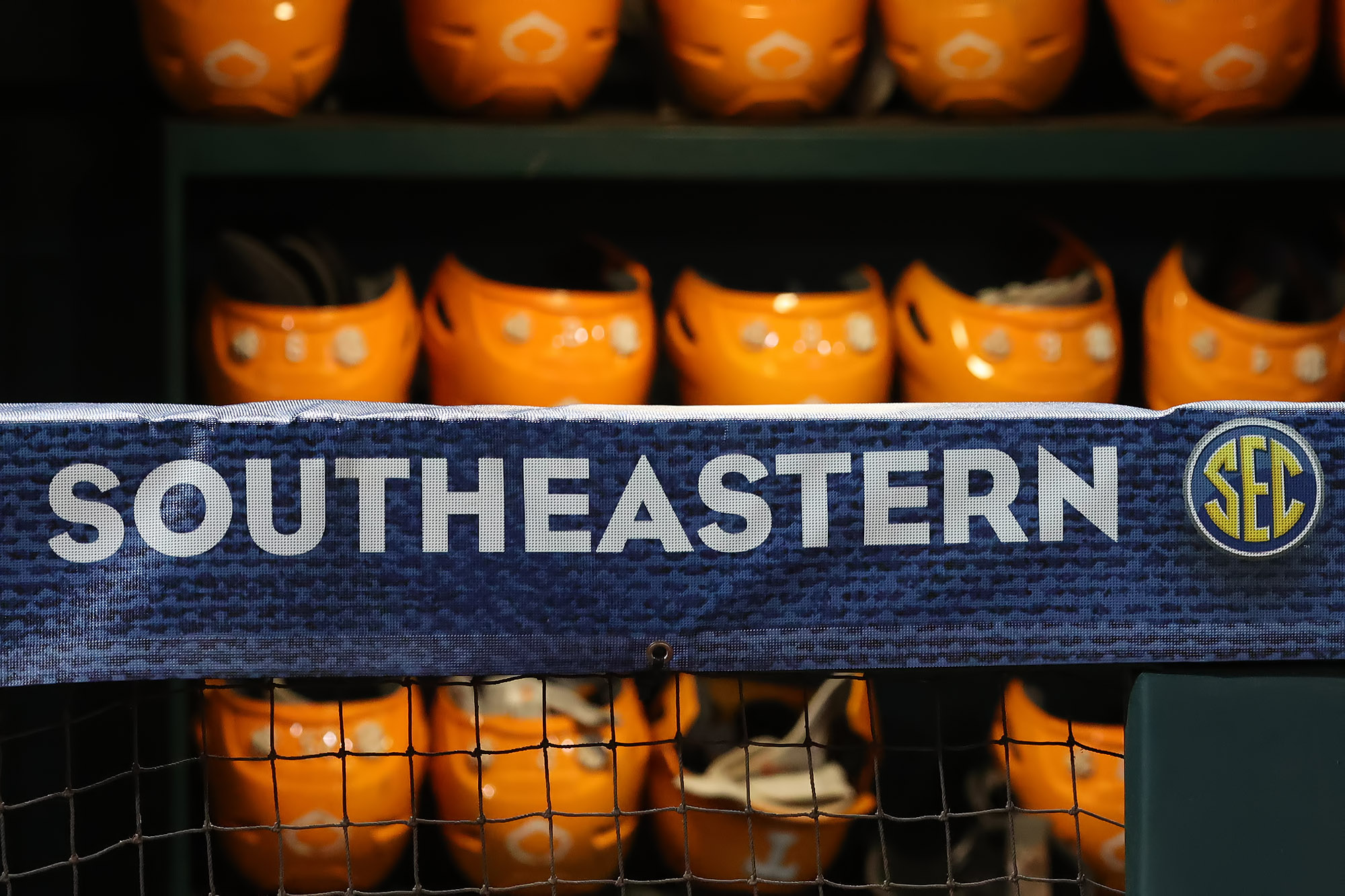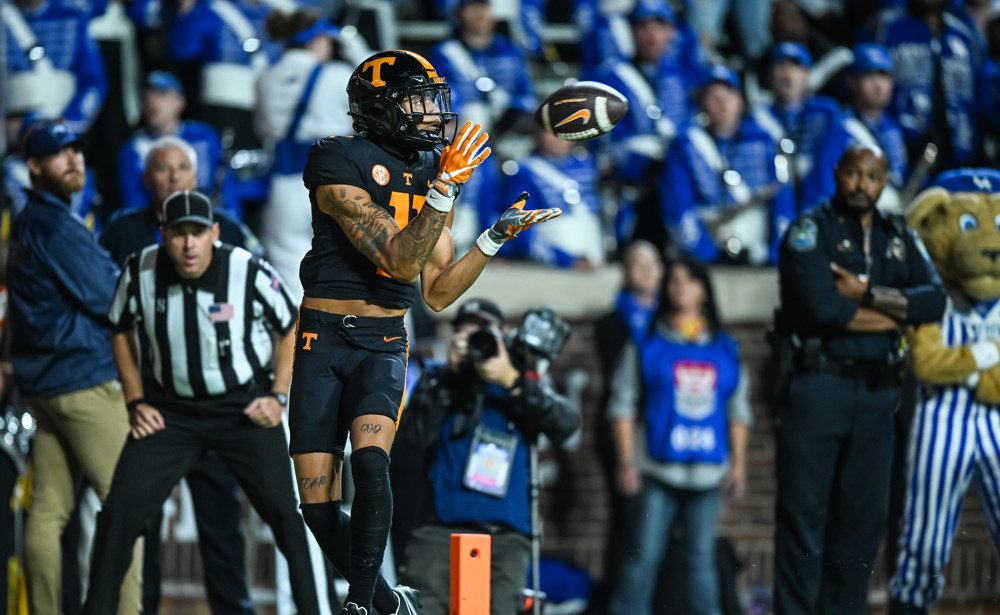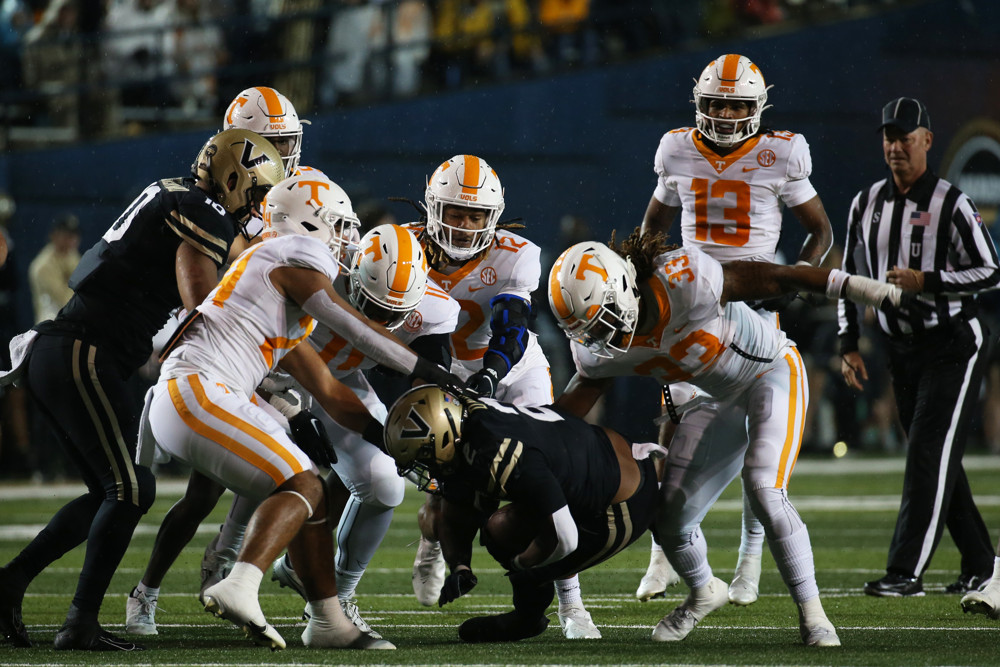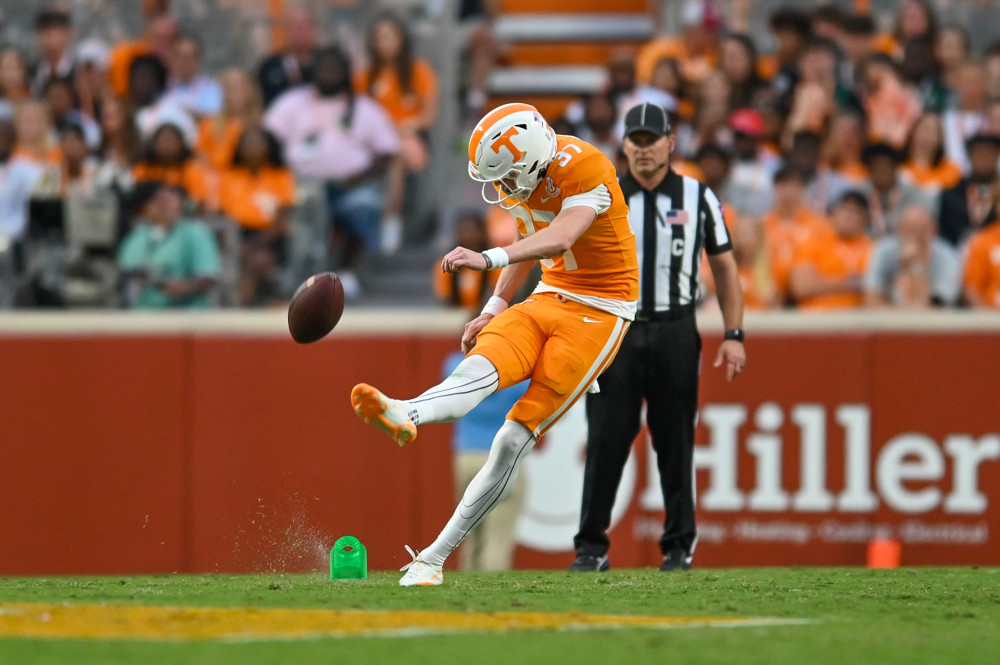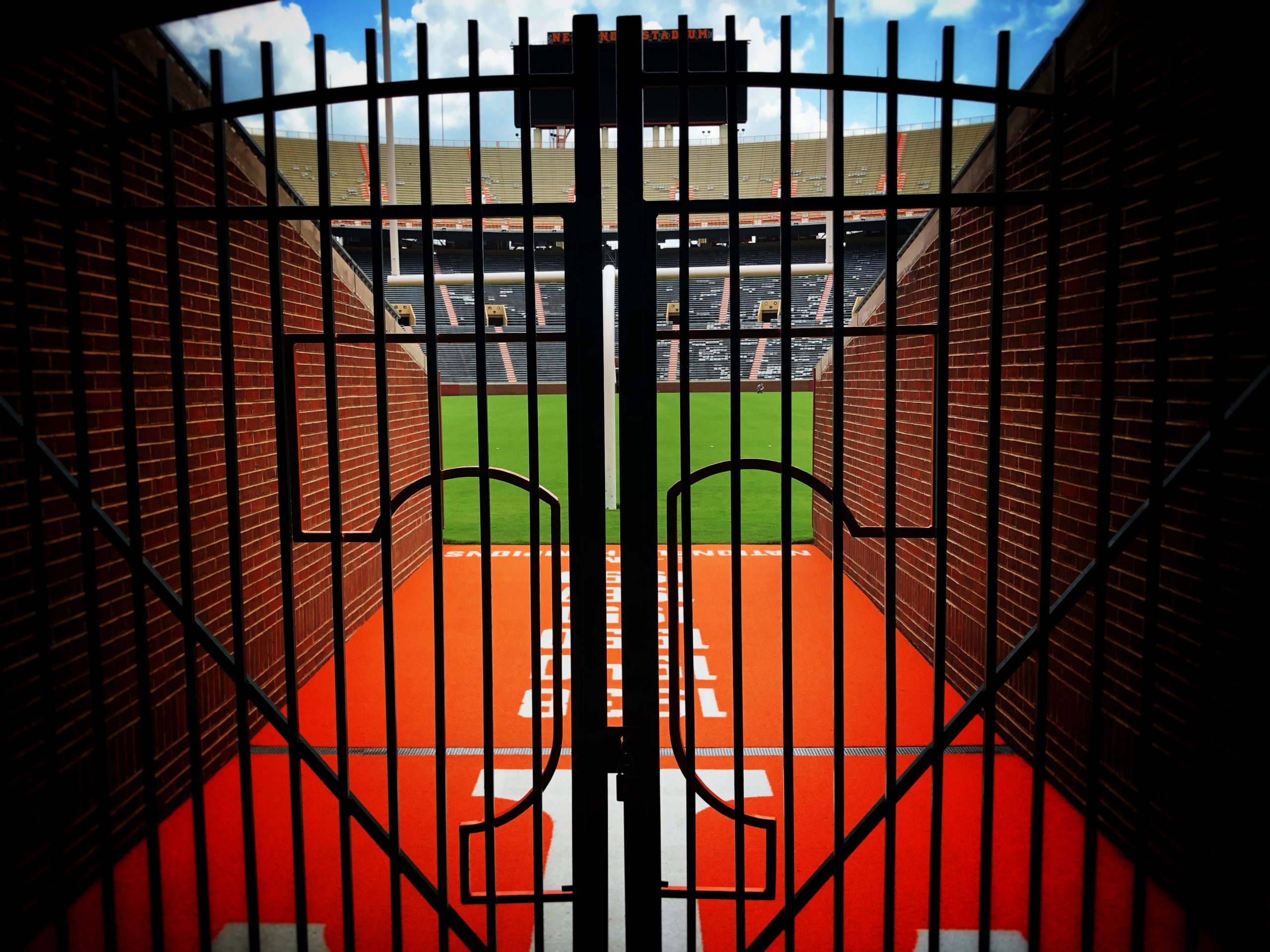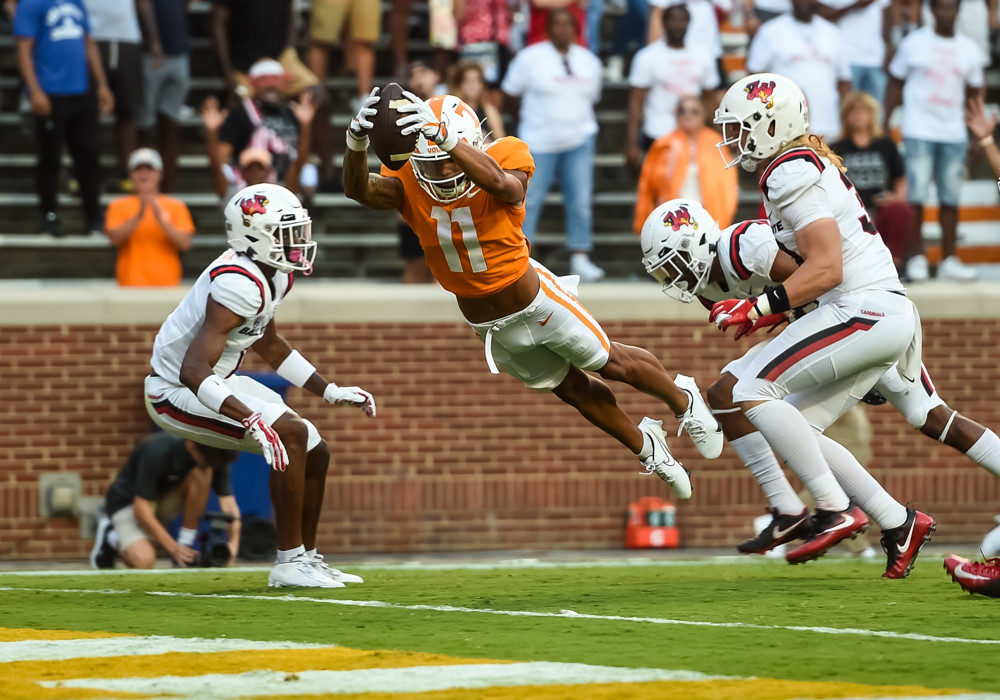We could get some news from Destin next week on the 2024 SEC football schedule, with the long-awaited debut of Texas and Oklahoma in the league. Everything in college football, from the expanded playoff to the return of the video game, is headed toward change one year from now.
Both of the proposed models would solve the SEC’s problem of teams not seeing each other for a thousand years. The 7-1 rotation in an eight game conference schedule would feature one annual opponent and seven rotating foes. The 6-3 rotation in a nine game conference schedule would feature three annual opponents and six rotating foes.
If you’re a Tennessee fan, which one do you prefer?
Staying at eight games keeps the league balanced with home and away games each year, which you obviously can’t do at nine. It also “protects” the opportunity for better records. In a 12-team playoff with six at-large selections, the SEC would certainly stand to benefit. Tennessee and Alabama would’ve both made such a field last season. With a nine game conference schedule, you’re playing five road games and four home games every other year. And a scenario could exist some years where the second-best team in the SEC ends up with a 9-3 record. How would the playoff committee consider such a team against an 11-1 counterpart from the ACC?
Moving to nine gives you an additional meaningful SEC game; it would be interesting to see if the league voted to keep its provision that each school has to play a power five non-conference opponent. More meaningful inventory could lead to more dollars for everyone through an adjusted TV deal.
And nine would certainly protect additional annual rivalries. A fun exercise for Tennessee fans right now: do you want to go to nine and keep the Alabama rivalry, or play eight and potentially be the only team in the league who plays Vanderbilt every year?
There are things to be excited about with either model. And either way, the league should strive for balance in breaking up the remaining opponents over the next two seasons.
Eight Game Schedule
In this format, let’s assume the annual rivalries look like this:
- Alabama vs Auburn
- Arkansas vs Missouri
- Florida vs Georgia
- Kentucky vs South Carolina
- LSU vs Texas A&M
- Mississippi State vs Ole Miss
- Oklahoma vs Texas
- Tennessee vs Vanderbilt
For simplicity’s sake, let’s assume teams would then play one of each of the above pairs in even years, and the other in odd years. This keeps some notion of balance in play; you wouldn’t want to play Alabama, Georgia, LSU, Oklahoma, etc. one year and play Missouri, Kentucky, Mississippi State, etc. the next.
If you’re Tennessee, such a breakdown might look like this:
- Even Years: Alabama, Florida, Oklahoma, LSU, Ole Miss, Missouri, Kentucky
- Odd Years: Auburn, Georgia, Texas, Texas A&M, Mississippi State, Arkansas, South Carolina
If we then break these down in balancing out the home and away portion, let’s take a stab at mock future schedules.
Mock 2024 Tennessee Schedule – Eight SEC Games
- 8.31 Chattanooga
- 9.7 vs NC State (Charlotte)
- 9.14 Kent State
- 9.21 Florida
- 9.28 Missouri
- 10.5 at LSU
- 10.12 bye
- 10.19 Alabama
- 10.26 at Ole Miss
- 11.2 Kentucky
- 11.9 bye
- 11.16 at Oklahoma
- 11.23 UTEP
- 11.30 at Vanderbilt
Mock 2025 Tennessee Schedule – Eight SEC Games
- 8.30 vs Syracuse (Atlanta)
- 9.6 FCS home opener
- 9.13 at Auburn
- 9.20 UAB
- 9.27 Texas A&M
- 10.4 at Mississippi State
- 10.11 bye
- 10.18 South Carolina
- 10.25 at Arkansas
- 11.1 non-conf homecoming
- 11.8 at Texas
- 11.15 bye
- 11.22 Georgia
- 11.29 Vanderbilt
You’d then flip the home/away components for 2026 and 2027. So in ’26, you’d go to Gainesville and Tuscaloosa but have LSU and Oklahoma come to Knoxville, etc.
The 2025 schedule is where it starts to look strange to me. You could have a year when Tennessee doesn’t play Alabama, Florida, or Kentucky. I’m not sure how deep in the weeds they’d go to balance out things like that, but if you base it somewhat on competitive balance, such a thing could easily exist.
Let’s give this a try with the nine game format.
Nine Game Schedule
In this format, we’re following the chatter and assuming Tennessee’s annual rivals are Alabama, South Carolina, and Vanderbilt. For competitive balance, we’re breaking up the other 12 teams in the same kinds of pairings in odd and even years. So you’d get something like this:
- Even Years: Florida, LSU, Oklahoma, Arkansas, Mississippi State, Kentucky
- Odd Years: Georgia, Auburn, Texas, Texas A&M, Ole Miss, Missouri
Mock 2024 Tennessee Schedule – Nine SEC Games
- 8.31 Chattanooga
- 9.7 vs NC State (Charlotte)
- 9.14 Kent State
- 9.21 Florida
- 9.28 at Mississippi State
- 10.5 at LSU
- 10.12 bye
- 10.19 Alabama
- 10.26 at South Carolina
- 11.2 Arkansas
- 11.9 bye
- 11.16 Kentucky
- 11.23 at Oklahoma
- 11.30 at Vanderbilt
Mock 2025 Tennessee Schedule – Nine SEC Games
- 8.30 vs Syracuse (Atlanta)
- 9.6 FCS home opener
- 9.13 at Auburn
- 9.20 UAB
- 9.27 Texas A&M
- 10.4 at Missouri
- 10.11 bye
- 10.18 at Alabama
- 10.25 South Carolina
- 11.1 Ole Miss
- 11.8 at Texas
- 11.15 bye
- 11.22 Georgia
- 11.29 Vanderbilt
Again, you’d flip the home/away in 2026 and 2027. So the Vols would go to Gainesville in ’26 and welcome LSU, etc. This one drops the UTEP game from the schedule in 2024, with no room in the inn for four non-conference games.
The college football fan in me loves the nine game model; I think it makes the most sense for a number of reasons, including the retention of the Third Saturday in October in a time when it is less disadvantageous to do so. Of course, if we’re making decisions exclusively through the competitive advantage lens, an eight game schedule with Vanderbilt as our annual rival is difficult to say no to; Tennessee has probably played the most difficult strength of schedule in the SEC for the last 30+ years of divisional play.
Either way, the fantasy element is fun to play with, but I’ll be eager to see the real thing, if we get any news next week or whenever. Which model would you prefer?
